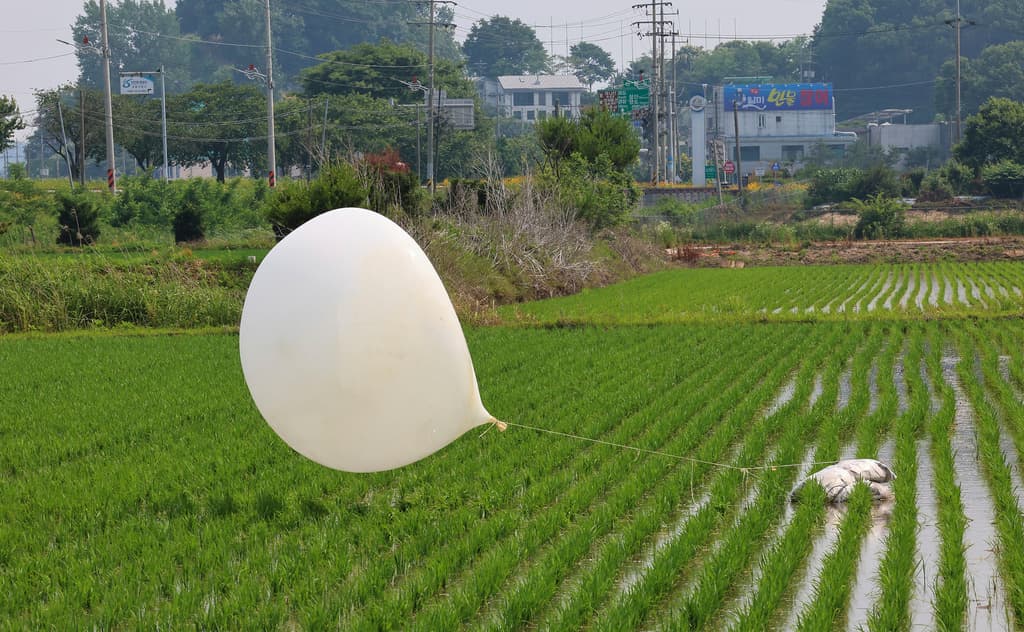Parasites from human faeces and destroyed clothes. This is part of the contents of the rubbish bags that have been sent to South Korea with balloons from North Korea, shows an analysis.
Further balloons are reported to be on their way south.
Over 1,000 rubbish balloons have been sent from North Korea across the border to the south in recent weeks. The balloons are, according to North Korea, a retaliation for leaflets that have been sent north across the border by activists in South Korea. The leaflets have, among other things, contained criticism of the regime in North.
The contents of about 70 of the North Korean balloons have been analysed. It has then been established that they contained soil where "many parasites, such as roundworms, whipworms and hookworms" were found, according to South Korea's Ministry of Unification in a statement. The reason is believed to be that human faeces have been used in the soil instead of chemical fertilisers, according to the ministry.
Since the amount of soil is relatively small, it is not considered to pose a risk of soil pollution or infectious diseases as a result of the balloons' contents.
The rubbish is a sign of North Korea's difficult economic situation, according to the South Korean ministry, citing torn children's clothes and other garments that have been used until they were almost completely worn out.
Certain clothes that had previously been donated in an aid effort from a South Korean company were found in the balloon cargo and had been deliberately destroyed, in some cases cut up.
On Monday, South Korean authorities report that North Korea has resumed sending balloons. Residents are urged not to touch them, but to report finds to the police and military.






